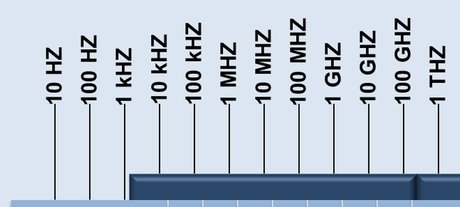Op-ed: Rescuing stranded spectrum for PSMB

In this invited op-ed, Rivada Networks responds to the Productivity Commission’s PSMB report.
Should emergency services rely on commercial carriers for mission-critical communications? That’s the conclusion of the Productivity Commission’s recent report on public safety mobile broadband (PSMB). Count us unconvinced.
The heart of the commission’s economic argument is that, one way or another, a PSMB network must be paid for. If the government built a brand-new network, reserved exclusively for the use of emergency services, the cost of such a build would be approximately $6.5 billion, according to the commission. What’s more, the commission contends, the cost is the cost, regardless of how or whether that cost is defrayed or mitigated.
Up to a point, that is a sensible view. There is no such thing as a free lunch or a free network. But even so, it represents a form of single-entry bookkeeping, and so misses half the story at least.
Australia has 30 MHz of spectrum in the 700 MHz band that could be made available to public safety. Were the government to ‘give’ it to emergency services, it would in theory be forgoing any revenue from its sale, which would be a cost to the state and taxpayers.
But that spectrum failed to attract the minimum bid at the last auction. As valuable as it may be in theory, it is for practical purposes a ‘stranded asset’.
Stranded or not, it would be an asset that emergency services could make use of. And when they are not using it, they could let it out to other users to generate revenue. This defrays the cost of owning their own network, while leaving them in possession of a valuable asset.
Consider an analogy. It is almost always cheaper to rent a home than to buy an equivalent residence. If it costs $2000 a month to rent a house or apartment, the mortgage paid to own it might be $2500 or $3000 a month. And yet most people who can, choose to own rather than rent. Ownership gives us security and stability, but also enables us to profit from the upside if our asset appreciates in value.
So it is with mobile broadband for public safety. The upfront cost of renting as opposed to building may appear lower, but it leaves our emergency services at the mercy of commercial operators. They would forever be tenants rather than owners.
There is, moreover, a crucial difference between network ownership and home ownership. A public safety mobile broadband network would go underutilised most of the time. And unlike our homes, technology allows the government to easily rent out its network to others whenever it’s not being used. So the government could expect to recoup the lion’s share of the incremental cost of ownership. It might even be able to turn a profit, even while providing public safety with most of the advantages of exclusive ownership.
Rivada Networks has developed just such technology, and we hoped its advantages would get a hearing before the Productivity Commission. So while we are not a neutral party, we bring a perspective that we believe deserves consideration as the government decides on its next move. We value the Productivity Commission’s careful work, but hope it isn’t the last word on what best serves the interests of Australia and its emergency services.
Why P25 technology remains a good fit for public safety communications
Digital LMR technology ensures police officers, firefighters and emergency management teams can...
From past to present: leveraging satellite data for better disaster resilience
Whether monitoring flood-prone regions or assessing wildfire-prone landscapes, historical...
Lancashire Police adds in-car video to full vehicle fleet
Motorola Solutions' M500 in-car video solution observes a vehicle's environment from...





